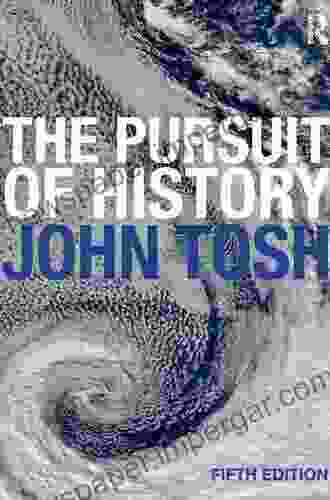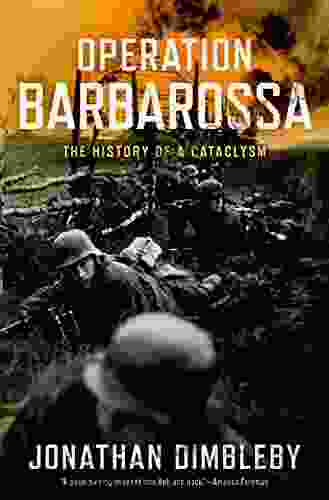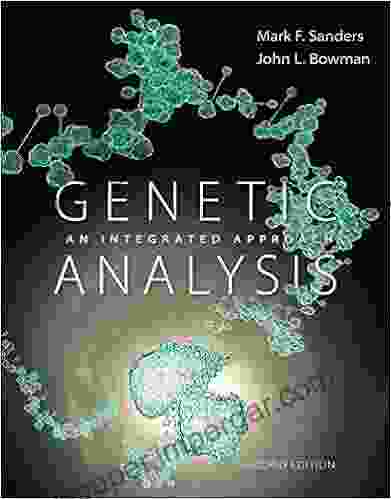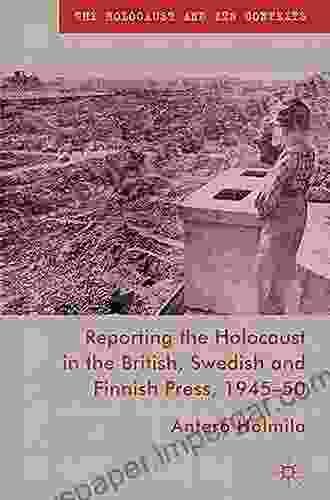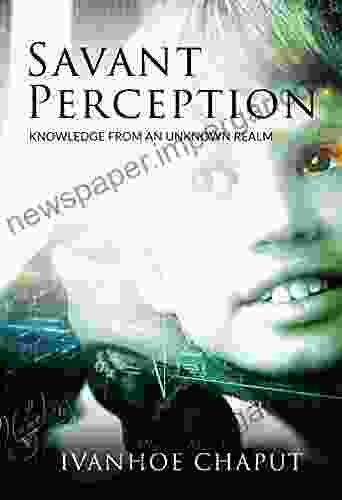Aims, Methods, and New Directions in the Study of History

4.4 out of 5
| Language | : | English |
| File size | : | 5030 KB |
| Text-to-Speech | : | Enabled |
| Screen Reader | : | Supported |
| Enhanced typesetting | : | Enabled |
| Word Wise | : | Enabled |
| Print length | : | 318 pages |
History, the study of the past, has captivated human minds for centuries. From the earliest chronicles to modern academic research, historians have sought to understand and document our collective journey through time. The study of history is not merely an academic pursuit; it is a vital tool for shaping our present and imagining our future.
Aims of Historical Study
The aims of historical study have evolved over time, reflecting changing societal needs and intellectual currents. Broadly speaking, historians aim to:
- Understand the past on its own terms: Historians strive to reconstruct the past as accurately as possible, immersing themselves in the context and perspectives of the people they study.
- Identify patterns and connections: By examining historical events and processes, historians seek to uncover recurring patterns and connections that shape human behavior and societal development.
- Develop critical thinking and analytical skills: Historical study cultivates essential critical thinking and analytical skills, equipping individuals to evaluate evidence and form informed judgments.
- Foster historical empathy: History promotes empathy by allowing us to step into the shoes of people from different times and places, understanding their motivations and challenges.
- Inform the present and future: By studying the past, we gain insights into present-day issues and can make more informed decisions about our future as individuals and societies.
Methods of Historical Research
Historians employ a diverse range of methods to gather and interpret historical evidence. These methods include:
- Primary source analysis: Primary sources, such as documents, artifacts, and oral histories, provide firsthand accounts of the past.
- Secondary source analysis: Secondary sources, such as books, articles, and documentaries, offer interpretations of the past based on primary source evidence.
- Oral history interviews: Interviewing eyewitnesses and participants in historical events can provide valuable insights and perspectives.
- Historical archaeology: The excavation and analysis of historical sites can uncover physical evidence of the past.
- Quantitative methods: Statistical and computational techniques can be used to analyze historical data and identify patterns.
New Directions in History
In recent decades, the study of history has undergone significant transformations, with new directions emerging that expand our understanding of the past. These directions include:
- Digital history: The digitization of historical sources has opened up new possibilities for research and analysis, enabling historians to access vast amounts of data and visualize it in novel ways.
- Public history: Public historians engage with the public through exhibitions, documentaries, and other forms of outreach, making history accessible and relevant to a broader audience.
- Memory studies: Historians explore how individuals and societies remember and commemorate the past, shedding light on the complexities of historical memory.
- Global history: This approach examines historical events and processes on a global scale, recognizing the interconnectedness of human experiences.
- Interdisciplinary approaches: Historians increasingly collaborate with other disciplines, such as sociology, psychology, and economics, to gain deeper insights into the past.
Benefits of Studying History
Studying history offers numerous benefits for individuals and society as a whole. These benefits include:
- Enhanced understanding of the world: History provides a broader perspective on the world, helping us understand the roots of present-day issues and the forces that have shaped our societies.
- Improved critical thinking and analytical skills: Historical study develops critical thinking, analysis, and problem-solving skills, essential for navigating a complex world.
- Cultivation of historical empathy: History fosters empathy by allowing us to understand different cultures and perspectives, promoting tolerance and understanding.
- Preparation for the future: By studying the lessons of the past, we can better anticipate future challenges and make informed decisions.
- Enrichment of personal life: History can enrich our lives by providing a sense of place and belonging, connecting us to our heritage and the broader human experience.
The study of history is an ongoing journey of discovery and understanding. Through the exploration of aims, methods, and new directions, historians continue to shed light on the intricacies of the human past. By embracing historical research and education, we unlock a profound and transformative power that shapes our present and empowers us to build a better future.
4.4 out of 5
| Language | : | English |
| File size | : | 5030 KB |
| Text-to-Speech | : | Enabled |
| Screen Reader | : | Supported |
| Enhanced typesetting | : | Enabled |
| Word Wise | : | Enabled |
| Print length | : | 318 pages |
Do you want to contribute by writing guest posts on this blog?
Please contact us and send us a resume of previous articles that you have written.
 Book
Book Novel
Novel Page
Page Chapter
Chapter Text
Text Story
Story Genre
Genre Reader
Reader Library
Library Paperback
Paperback E-book
E-book Magazine
Magazine Newspaper
Newspaper Paragraph
Paragraph Sentence
Sentence Bookmark
Bookmark Shelf
Shelf Glossary
Glossary Bibliography
Bibliography Foreword
Foreword Preface
Preface Synopsis
Synopsis Annotation
Annotation Footnote
Footnote Manuscript
Manuscript Scroll
Scroll Codex
Codex Tome
Tome Bestseller
Bestseller Classics
Classics Library card
Library card Narrative
Narrative Biography
Biography Autobiography
Autobiography Memoir
Memoir Reference
Reference Encyclopedia
Encyclopedia John Sommers Flanagan
John Sommers Flanagan John F Hein
John F Hein John T Halliday
John T Halliday Jonathan Dimbleby
Jonathan Dimbleby John T Moore
John T Moore John Rosemond
John Rosemond John Hanc
John Hanc Joseph Fishkin
Joseph Fishkin John Stuart Mill
John Stuart Mill Jonathan Barnes
Jonathan Barnes Jonathan Werner
Jonathan Werner John W Dower
John W Dower John R Ferraro
John R Ferraro Joseph T Hallinan
Joseph T Hallinan Joseph D Thomas
Joseph D Thomas John Harrison
John Harrison John R Farella
John R Farella John J Culbertson
John J Culbertson John Rosenberg
John Rosenberg Jorge Luis Borges
Jorge Luis Borges
Light bulbAdvertise smarter! Our strategic ad space ensures maximum exposure. Reserve your spot today!
 Harrison BlairFollow ·18.2k
Harrison BlairFollow ·18.2k Reginald CoxFollow ·18.5k
Reginald CoxFollow ·18.5k Esteban CoxFollow ·17k
Esteban CoxFollow ·17k Gary CoxFollow ·11.5k
Gary CoxFollow ·11.5k Cade SimmonsFollow ·16.1k
Cade SimmonsFollow ·16.1k Corey GreenFollow ·16.1k
Corey GreenFollow ·16.1k Mitch FosterFollow ·3.8k
Mitch FosterFollow ·3.8k Doug PriceFollow ·5.8k
Doug PriceFollow ·5.8k

 Jake Powell
Jake PowellThe Constitution of the State of Colorado: A Legacy of...
Since its adoption in 1876, the...
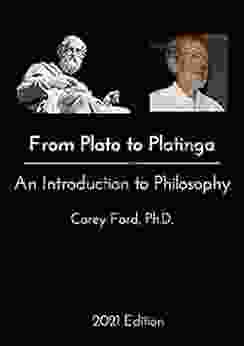
 Devin Ross
Devin RossFrom Plato to Plantinga: A Journey Through the History of...
Philosophy is the study of...
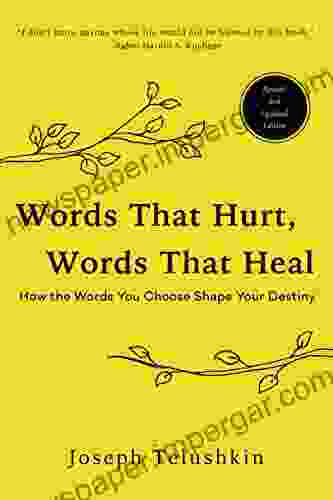
 Robin Powell
Robin PowellWords That Hurt, Words That Heal: The Power of Language...
Words are powerful. They can...

 T.S. Eliot
T.S. EliotTantalize Your Taste Buds with Over 90 Low-Carb Ethnic...
Indulge in a Culinary Adventure with "Over...
4.4 out of 5
| Language | : | English |
| File size | : | 5030 KB |
| Text-to-Speech | : | Enabled |
| Screen Reader | : | Supported |
| Enhanced typesetting | : | Enabled |
| Word Wise | : | Enabled |
| Print length | : | 318 pages |


